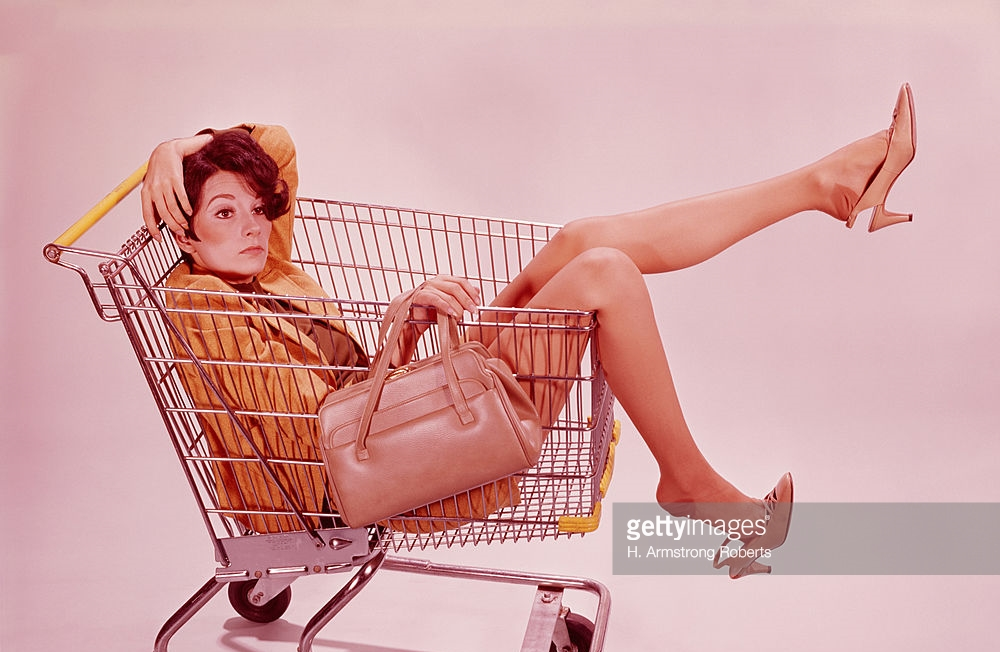Last week, I started a deep analysis as to why Sephora’s retail atmosphere makes me, as an INTJ, want to run from the store screaming. If you missed Part One, check it out here. I’ll be honest, this was meant to be a one-off article; but I got carried away and this has turned into yet another three-part series. What can I say? No one has ever said that INTJs can’t be verbose! In this segment, I will look more closely at how Sephora could create a more cognitive-aware environment for customers who are heavy users of introverted intuition: INTJ, INFJ, and to a lesser degree ENTJ and ENFJ, who are secondary users. Please note: The use of the term introverted intuitive is key to identifying the factors that make shopping in store difficult for some customers. This article is specific to INTJs, but as many of these cognitive traits apply to dominate intuitive users, introverted intuitive will be used for intuitive specific traits.
Why is shopping at Sephora so hard for Introverted Intuitives?

Intuition gathers information subconsciously and helps to inform the introverted intuitive’s sense of possibility. As covered in the Elusive Fashion Habits of the INTJ Female series, brands wishing to sell to INTJs must expect a longer sales cycle as they gather data and information about the products in which they are interested. This second stage of the buyer’s journey narrows buying choices to a final few. When a decision is finally made for INTJs (with the extroverted thinking function), little can sway them to change their mind, or to splurge on additional products, except . . . The INTJ’s clear vision can become muddled and overwhelmed when there is too much new information in the purchase environment and not enough time to absorb and analyze that information. This is particularly the case when an INTJ feels that they lack deep-seated knowledge about a product they’ve decided to buy. Of course, you could say that INTJs should get over themselves. They should just get more educated before going to the store. You could even push it further and say that it’s really the INTJ’s fault. It’s not the job of the retailer, brand, product to educate a consumer at the point of purchase. Why are INTJs so needy?
It’s not that INTJs are needy.

It truly is about an environment that overwhelms the introverted intuitive’s cognition style. Sephora’s retail environment requires the intuitive to turn off an essential aspect of engagement, the very engagement mechanism that would result in a purchase. The environment overwhelms the intuitive, causing them to lose confidence in their pre-purchase research. Beauty products are constantly changing. Who used light reflecting primer or high-definition makeup before articles like these? There are a bajillion brand choices. I can read all the articles in the world, but competing articles do little to increase the confidence of a value conscious INTJ. In a nebulous area like fashion and/or makeup, we use research as the foundation to contextual purchase factors (article about that coming soon). If new information is presented, there is a tendency, as an Always Uttori Instagram follower put it, “I tend to talk myself out of things . . . I think the eternal research mode is due primarily to the intuitive function which likes to collect data.” Sending a customer back to the eternal research mode at the point of purchase is certainly not Sephora’s goal. Plus, many of their marketing initiatives are on target for the introverted intuitive (beauty boxes that introduce and educate, online tutorials, shopping rewards). Yet, once the introverted intuitive gets in store, those pre-sales efforts can be wrecked by an overwhelming retail environment. Ultimately, the INTJ, and other introverted intuitives, have done their job; they are in store, ready to purchase. At that point, it is the retailer who must ease the friction in the buyer’s journey. That statement is true whether the buyer is a sensing type (the type that would most likely find Sephora a wonderland), or an introverted intuitive.
There are so many great things about Sephora as a brand. They have a large selection, a big draw for many customers. Clearly, shopping Sephora is intended to be an experience. Unfortunately, for the introverted intuitive, it is the in store shopping experience that eliminates the introverted intuitive’s desire to purchase products that they may have already decided to buy. Sephora’s cognitive beware mistakes occur mostly in store.

Cognition Beware Mistakes:
- For cognition types drawn to gathering data and information, a retail environment that presents overwhelming amounts of data can be stressful. When introverted intuition users enter the store, the large amounts of new data trigger the data collection gathering system, not the decision / buying making system. This can trick the intuitive into feeling like they don’t know enough to make an informed decision, resulting in them leaving the store empty-handed (and possibly in tears :P).
- Another factor that can impact an introverted intuitive’s buying behavior is the Sephora’s cast member’s personal feelings about a product. Intuitive customers are good at picking up nuances in interpersonal interactions. An employee’s personal feelings on a product, or the store’s overall policy to push one product over another, may stall and confuse intuitive customers so that they don’t make a purchase until they can further verify their own thoughts on the product.
- As mentioned last week, the store space is loud and crowded, making it difficult to really examine and firm up purchase decisions.
Cognition Aware Approach:
Sephora could help to eliminate the introverted intuitive’s natural intuition stall by creating a curated product space to work in conjunction with their Sephora Play box. Introverted intuitives have already been introduced to these products. They are educated and confident in their understanding of the products offered in the box. This box was most likely created to compete with other beauty boxes encroaching on the beauty market, but by creating such a box, Sephora has unintentionally created a more cognitive aware method of shopping. The curated content appeals to the intuitive because you get five items that fit a theme, which makes for easier learning. The box includes an information packet with additional content URLs like videos explaining what everything does and how to use it. This feeds the intuitive’s need for data and topic mastery, helping the intuitive customer feel like they are becoming an expert bit by bit. Curation provides a safe and on-the-intuitive’s-terms environment, so they can engage with the brand at whatever their level of understanding. This also means that the intuitive is not forced to engage in ways that are stressful. As for in store interaction with cast members, as I mentioned last week, utilizing that back of store space, which really is mostly empty of customers, is an excellent way to create a serene spot for overwhelmed intuitives.
Don’t forget to check out the final part in this series, extroverted thinking, here!
